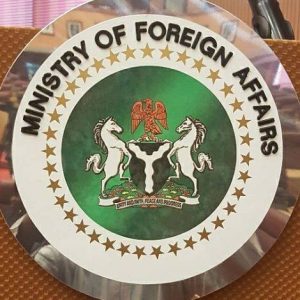‘Nigeria may go into economic depression over Oil crisis’
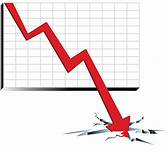
As global oil prices plummeted in historic fashion recently, with the US West Texas Intermediate (WTI) crude oil trading at $-37.45 per barrel, while Nigeria’s crude oil, which is benchmarked against the Brent crude is $25. Although, traders in the market said the Bonny Light was sold for between $11 and $13 recently.
However, since the start of the year, oil prices have plunged after the compounding impacts of the coronavirus and a breakdown in the original OPEC+ agreement. With no end in sight, and producers around the world continuing to pump, that’s causing a fire-sale among traders who don’t have access to storage.
It is, worthy of note that Nigeria is one of the most affected countries with no storage space to store excess production. For instance, tens of millions of barrels of crude oil in scores of vessels cruising the seas, with no one calling to buy even at a $5 discount per barrel. Not only this but the daily cost of renting vessels doubled to $350,000 per day because of the nation’s lack of onshore crude oil storage.
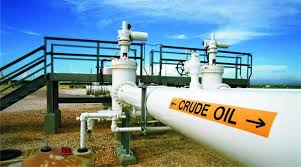
Although, Nigeria’s crude price is not yet in negative territory, all these developments not good for Nigeria’s economy, due to her dependency on oil revenue.
Already, Nigeria like every other oil exploring countries are running at a loss. For instance, Bonny Light (Nigeria’s crude oil) is trading at about $11, which is half the cost of producing the barrel. But even at this sharp declined price, Nigeria is not able to sell her crude oil.
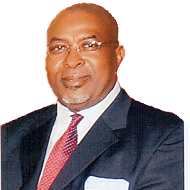
Commenting on this development, Professor of Finance and Business Economics, and Dean School of Business, University of Uyo, Professor Leo Ukpong, said that it is unfortunate that Nigeria depends and done all her planning on crude oil for a very long time, which is the reason why it catches the economy by surprise anytime there is a crisis.
According to him, most experts have been warning that eventually, crude oil will be exhausted, which we don’t know how long that will take or the crude oil will drop and we cannot handle our expenditure or execute our budget.
“In fact, the direct implication of the sharp drop of Nigeria’s crude to the economy is that we are going to face a serious recessionary measure when the inability to buy things is going to drive the economy down.

“Our economy depends a lot on government sales of crude because we don’t really have a buoyant private sector that can sustain the fall of the crude oil right now. Unfortunately, we might even go into an economic depression, something more serious that recession, when you have falling prices, rising unemployment, and inability to sustain the purchasing of goods and services”, he said.
In the long term, he noted that one of the major problems in the country is that prices don’t adjust quickly in Nigeria, but if the price could drop quickly we can sustain. Because if the price dropped, the low income by the households will still be able to purchase the real value of what we use to purchase. But in Nigeria, inflation takes a long time to come down, so it is going to be a very high inflated economy with low jobs and low demand for goods.”We are going to face a situation where the income is reduced, jobs will be lost and prices will still high because that is the irony of our economy.”

Explaining why the nation will face high price of goods and services, he said: “This is because most of the things we use for production and consumptions are imported. For instance, the Naira has crashed and we will still be importing at our inflated or highly depreciated Naira rate and when converted into our prices, but the situation could have been different if we are producing from our own capability price would drop quickly. So, it doesn’t look good for our country.”
Speaking on the importance of sustaining purchasing power in the country, he said that if people starting losing jobs or employer can’t pay salaries, it will affect demanding power, and lack of demand will create more unemployment in the country.
“The government must look for a way to make sure that there is price control, In the short term, they must make sure that those who supply, who sell, manufacturer don’t exaggerate the price too high so that people can still buy. So, they must come up with a policy to make sure income is maintained”, he said.

Meanwhile, the recent deal reached by members of the Organisation of Petroleum Exporting Countries (OPEC) and non-members, jointly called OPEC+ penultimate week, to cut oil output by 10 million barrels, and the Central Bank of Nigeria pronouncement that it will inject stimulus in the country’s economy has renewed investors’ confidence in the Nigerian equity market.
Portfolio investors turned their backs on emerging markets, especially those whose economies are hinged on commodities, due to the sharp drop in oil prices, caused by glut and low demand due to the coronavirus pandemic.
Oil price plummeted to 18 years low of $22 on March 31, forcing OPEC members led Saudi Arabia and non-OPEC members headed Russia to hold a four-day extraordinary meeting, where they agreed to cut output by 10 million barrels. Brent crude price settled at $25 last Friday.
Moses Ojo, Chief Economist/Head, Investment Research at PanAfrican Capital Holdings, believed that though oil prices hinged the current recovery in the Nigerian equity market on the agreement by OPEC+ to address the challenge of glut by scaling down output by 10 million barrels.
“There are a lot of speculators in the Nigerian equity market. The current trend is not expected to last long, because soon investors will start taking profits, which will bring back downward trend. In the medium term, the uptrend is expected to last as long as the positive reaction does,” he explained.
Ayodele Akinwunmi, Head, FSDH Merchant Bank, attributed the market resurgence to policies pronouncements by different central banks on plans to reflate their economies after the COVID-19.
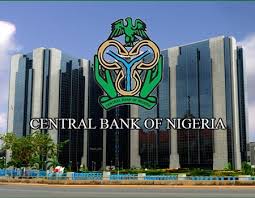
The Central Bank of Nigeria (CBN) in March announced that it will inject N1trillion across all critical sectors of the country’s economy. It also disclosed that it will be floating an infrastructure bank to address the huge infrastructural deficit in Nigeria, which would help the country’s economic diversification drive.
Akinwunmi also reasoned that investors have chosen to stay with the equity market which has a high return potential when compared with the fixed income market, which currently has a return below the country’s February inflation of 12.2 per cent.
Analysts at GTI Securities, however, have projected that the market may reverse this week after seven consecutive trading sessions of gaining streak, despite COVID-19 lockdown, as some investors would exit their position, not minding the attractive valuation of many equities.

The International Monetary Fund (IMF) in its Regional Economic Outlook for Sub-Sahara Africa, titled COVID-19: An Unprecedented Threat to Development, which was released recently, said coronavirus pandemic would largely disrupt production, which may cause by workplace closures, disruption of supply chains, and reduction in labour supply because of sickness or death.
“Furthermore, a lockdown can have devastating effects (for example, food insecurity) on vulnerable hand-to-mouth households with limited access to social safety nets. Meanwhile, the loss of income, fear of contagion, loss of confidence, and heightened uncertainty all reduce demand,” it stated.

“In addition, the sharp tightening of global financial conditions reduce investment flows to the region and hamper its ability to finance spending needs to deal with the health crisis and support growth. This may result in either a cut in government spending, a buildup in arrears, or an increase in government borrowing in local markets, with attendant consequences on domestic credit and growth. For frontier economies, the sudden stop and capital outflows are exerting exchange rate pressures and can result in a large current account adjustment through domestic demand compression and further balance sheets pressures in countries with large foreign exchange mismatches.”
It further noted that foreign remittance flows may also dip as global growth slows, reducing disposable income and adding to external pressures.

Meanwhile, WHO had said Africa could be the next epicentre of the COVID-19 pandemic. The continent has had 13,104 confirmed cases and 616 deaths as of April 18. And Nigeria has recorded 665 confirmed cases with 22 deaths as of April 18, 2020.
Lagos which is the commercial hub of the country and Abuja, the seat of government with Ogun, which is a next-door neighbour to Lagos, have been on the total for over three weeks.




